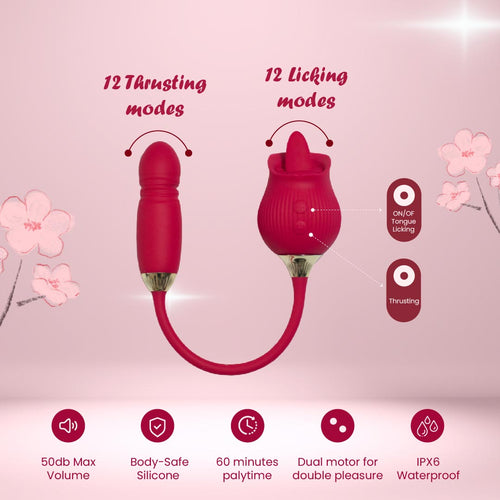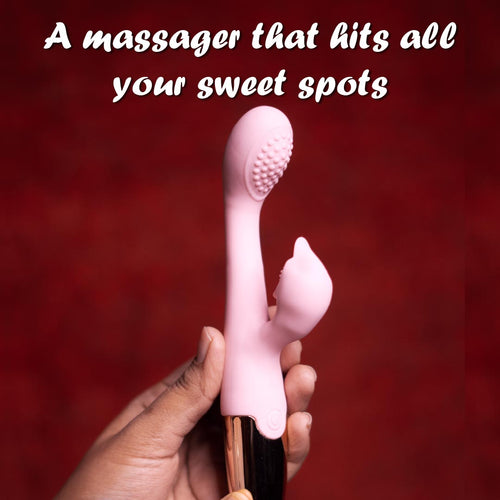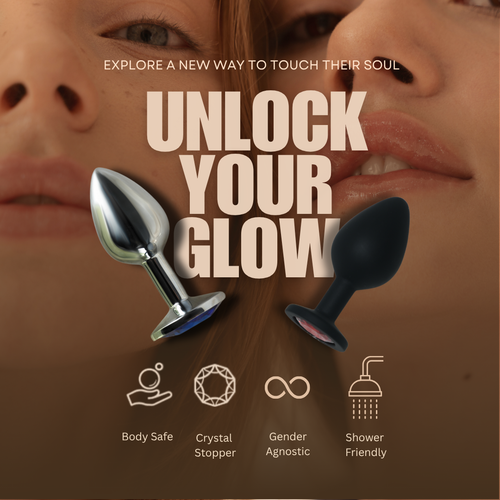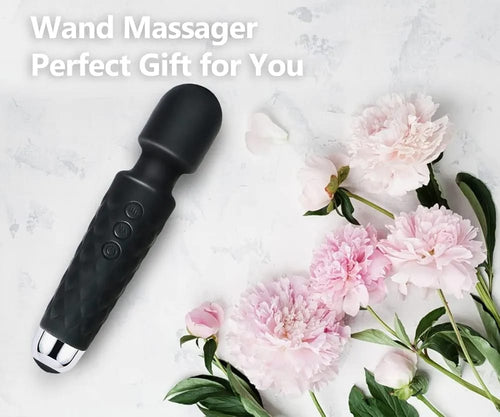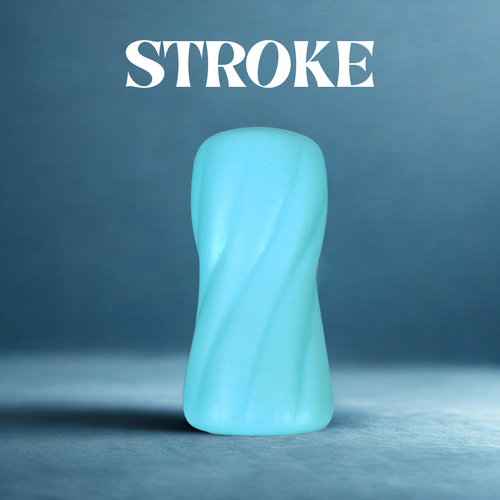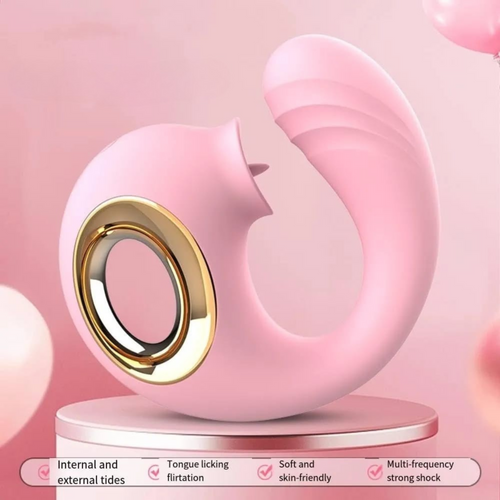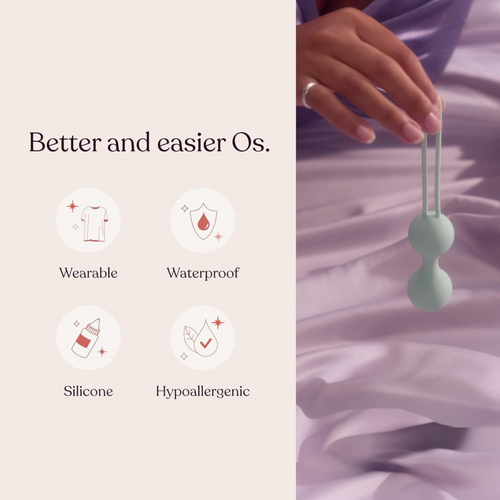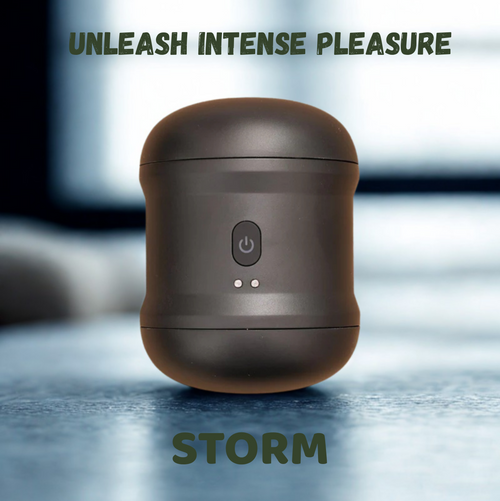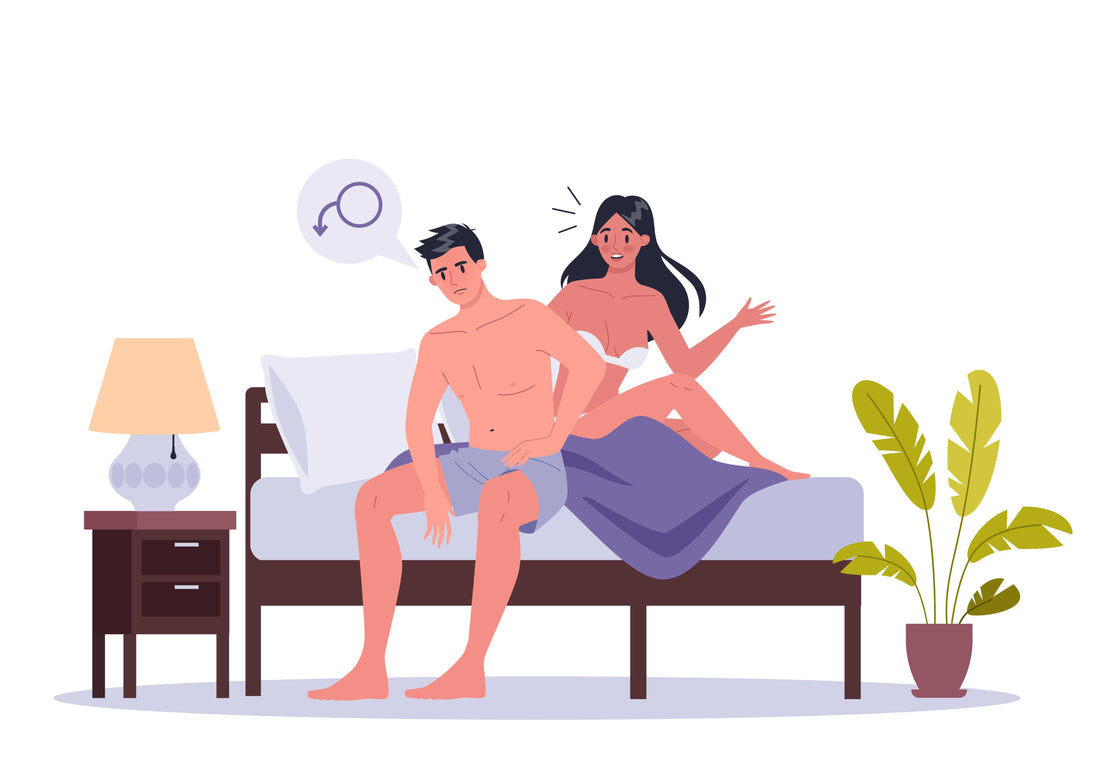
Masturbation Is Self-Care: Here’s Why You Shouldn’t Feel Guilty
Let's be real: you probably feel a slight twinge of guilt after masturbating. That nagging voice saying you should be doing something "more productive" with your time.
But here's the truth: masturbation is self-care, not self-indulgence. It's as legitimate as your meditation app or that expensive face mask you don't think twice about using.
Science backs this up. Regular masturbation reduces stress, improves sleep, boosts your mood, and even helps with period cramps. It's literally your body's built-in wellness tool.
So why do we still whisper about it? Why do 63% of women report feeling shame after pleasuring themselves?
Let's unpack the guilt and get to the good stuff – because what you're about to learn might completely change how you view your alone time.
Understanding Masturbation as Self-Care
The Physical and Mental Health Benefits
Pleasure isn't just fun—it's actually good for you. When you masturbate, your body releases endorphins and dopamine, creating that natural high feeling. It's like getting a free mood boost whenever you need it.
Your body benefits too. Regular masturbation can help with everything from better sleep to reduced menstrual cramps. Some studies even suggest it might lower your risk of prostate cancer in men. Plus, who doesn't want better blood circulation?
And let's talk about stress reduction. Nothing cuts through anxiety quite like an orgasm. Your brain literally can't obsess over work deadlines when it's flooded with feel-good chemicals.
How Regular Masturbation Reduces Stress
Ever notice how much clearer your head feels after self-pleasure? That's not coincidence.
When you masturbate, your body's cortisol levels drop. Cortisol is that nasty stress hormone that keeps you up at night and makes your shoulders tense up.
Self-pleasure is basically a reset button for your nervous system. Your blood pressure drops, your muscles relax, and suddenly that thing you were freaking out about doesn't seem so overwhelming.
Unlike other stress-relief methods that require equipment, special places, or other people—this one is always available. Bad day at work? Stressed about bills? You've got built-in stress relief right at your fingertips.
Connection Between Self-Pleasure and Self-Love
Masturbation isn't just physical—it's deeply connected to how we feel about ourselves. Taking time to explore what feels good is a powerful form of self-acceptance.
When you prioritize your pleasure, you're sending yourself a message: "My needs matter." That mindset extends beyond the bedroom into every aspect of your life.
Many people report feeling more comfortable in their skin after developing a healthy self-pleasure routine. You learn what your body responds to, what it likes, what it doesn't. This body literacy is invaluable for building confidence.
Breaking Down the Science Behind Orgasms and Wellness
The science here is pretty impressive. During orgasm, your brain lights up in ways similar to meditation. The limbic system—your emotional center—gets flooded with oxytocin (the bonding hormone) and endorphins.
These chemical reactions have measurable health impacts:
-
Improved immune function
-
Better sleep quality
-
Natural pain relief
-
Reduced anxiety symptoms
Your body's inflammatory response even decreases after orgasm, which might explain why some people find relief from chronic pain conditions.
The best part? These benefits apply whether you're with a partner or flying solo. Your body doesn't discriminate—pleasure is pleasure, and your nervous system reaps the rewards either way.
Historical and Cultural Sources of Masturbation Guilt
A. Religious Perspectives and Their Evolution
Ever wonder why you feel that twinge of guilt? Religious doctrines have played a massive role in shaping attitudes toward masturbation. For centuries, many major religions labeled self-pleasure as sinful, wasteful, or impure.
Christianity traditionally viewed it as "spilling seed" - a waste of procreative potential. Judaism had similar restrictions, though interpretations have softened over time. Islam often discouraged the practice while acknowledging human sexual needs.
But here's the thing: religious views aren't frozen in time. Progressive religious leaders are increasingly recognizing masturbation as a natural part of human sexuality. Many now distinguish between shame-based restrictions and teachings about mindful sexuality.
B. Cultural Taboos Across Different Societies
Walk around the world, and you'll find masturbation taboos vary wildly. Western societies have gradually moved toward acceptance, while many Asian and African cultures maintain stronger taboos.
Victorian-era attitudes still echo in English-speaking countries, where masturbation was once treated as a dangerous activity causing everything from blindness to insanity (spoiler alert: it doesn't).
In contrast, some indigenous cultures have historically viewed self-pleasure as natural and unremarkable. The gap between these perspectives shows just how constructed our guilt really is.
C. How Media Portrayal Shapes Our Attitudes
Media has a love-hate relationship with masturbation. Movies and TV shows often play it for laughs (awkward walk-ins, anyone?) or portray it as something only desperate or lonely people do.
When's the last time you saw masturbation portrayed as healthy self-care on screen? Probably never. The message becomes clear: it's either funny, sad, or shameful - rarely normal or positive.
Social media and porn further complicate things by simultaneously hyper-sexualizing content while platforms ban even educational discussions about self-pleasure.
D. The Impact of Poor Sex Education
Most of us sat through sex ed that completely skipped masturbation, or worse, implied it was problematic. The silence is deafening and damaging.
Comprehensive sex education that includes masturbation as normal would prevent mountains of unnecessary guilt. Countries with better sex ed report healthier attitudes toward all aspects of sexuality.
Without proper education, we're left to piece together information from unreliable sources - friends, media, religious teachings, or internet rabbit holes - creating a perfect storm of misinformation and shame.
Reframing Your Mindset About Self-Pleasure
A. Recognizing Harmful Thought Patterns
Ever notice how your brain can be your worst critic during intimate moments? Those thoughts telling you masturbation is "dirty" or "shameful" aren't actually yours. They're borrowed—from outdated cultural messages, religious guilt-trips, or awkward childhood moments when someone walked in at the worst possible time.
The first step to breaking free? Just notice these thoughts when they pop up. Don't fight them (that makes them stronger). Instead, get curious: "Where did I learn this? Is this actually true?"
Most guilt comes from three main places:
-
Religious teachings that never updated with modern understanding
-
Cultural myths about "saving yourself" or "using up" pleasure
-
Childhood shame when adults reacted badly to natural exploration
B. Building Positive Associations with Your Body
Your body isn't just something you inhabit—it's literally designed for pleasure. That tingling sensation? It's supposed to be there.
Try this: Before any self-pleasure session, take 30 seconds to thank your body for being capable of feeling good. Sounds cheesy, works wonders.
Start connecting with your body outside of sexual contexts too. Feel the warmth of shower water, enjoy the stretch after sitting too long, or notice how your skin feels against soft fabric.
The more you recognize your body as a source of all kinds of pleasure, the less weird it feels to intentionally create sexual pleasure.
C. Setting Boundaries and Creating Sacred Space
Your self-pleasure deserves privacy and intention, not a rushed, guilt-ridden experience.
Create your own ritual:
-
Set aside actual time (not just "before sleep if I'm not too tired")
-
Make your space comfortable (fresh sheets, locked door, phone on airplane mode)
-
Consider lighting (soft lamps or candles beat harsh overheads)
-
Temperature matters (being cold is the enemy of arousal)
Tell roommates or partners you need alone time. You don't owe explanations, but a simple "I need an hour to myself" works wonders.
D. Practices for Mindful Masturbation
Rushing through masturbation like it's a chore reinforces shame. Slow down.
Start with just touch—not even sexual areas. Feel the texture of your skin, the curves and planes of your body. Breathe deeply. When you do touch erogenous zones, pay attention to what feels good rather than racing to the finish line.
Try the 5-senses technique:
-
What do you see? (your beautiful body, the play of light)
-
What do you hear? (your breathing changing, music if you've chosen some)
-
What do you smell? (your natural scent, maybe essential oils)
-
What do you taste? (run your tongue over your lips)
-
What do you feel? (temperature, texture, pressure, rhythm)
E. Mantras and Affirmations to Overcome Guilt
When shame creeps in, having ready responses helps:
"My pleasure belongs to me."
"My body is designed to feel good."
"I deserve to know what brings me pleasure."
"This is normal, natural, and healthy."
"I am taking care of my needs."
Repeat these before, during, or after self-pleasure. Eventually, they'll replace the negative soundtrack in your head.
Remember: masturbation is one of the safest forms of sexual expression. No STIs, no pregnancy risks, no negotiating consent—just you honoring your body's capacity for joy.
The Relationship Benefits of Self-Knowledge
How Understanding Your Body Improves Partnered Sex
Think about it - how can you tell a partner what feels good if you don't know yourself? Solo play is basically the ultimate research session for your own pleasure.
When you masturbate regularly, you're collecting valuable data. You discover what touches make you tick, what pressure feels amazing, and which moves send you over the edge. This isn't selfish - it's actually one of the most generous things you can do for your partner.
Most unsatisfying sexual encounters stem from poor communication and misunderstanding about what feels good. But when you come to the table knowing exactly what works for your body, you can guide your partner with confidence.
People who masturbate regularly report more satisfying partnered sex. They're more comfortable asking for what they want and showing partners how to touch them. It's like giving someone a map instead of making them guess the destination.
Communication Skills Developed Through Self-Exploration
Masturbation teaches you to listen to your body. And that skill translates directly to better communication in the bedroom.
When you regularly check in with yourself during solo sessions – noticing what feels good, what doesn't, and how your needs change – you're practicing the exact same awareness you need during partnered sex.
This self-knowledge gives you the vocabulary to express desires clearly. Instead of vague directions like "that's nice," you can say precisely what works: "slower," "to the left," "more pressure."
The comfort you develop talking to yourself about pleasure makes it easier to break through the awkwardness of sexual communication with partners. You stop seeing your needs as embarrassing and start seeing them as essential information.
Creating Healthier Expectations About Pleasure
Let's get real - porn and movies have given us some wildly unrealistic ideas about sex. Solo exploration helps reset those expectations.
Through masturbation, you learn that orgasms don't always happen instantly. Sometimes they build slowly. Sometimes they don't happen at all. And that's completely normal.
You discover that arousal fluctuates. What worked yesterday might not work today. Your body isn't a machine with an on/off switch - it's complex and changes with stress levels, hormones, and countless other factors.
This knowledge protects you from the pressure to perform in specific ways during partnered sex. You stop seeing climax as the only goal and start appreciating the whole journey of pleasure.
When both partners bring this understanding to sex, the experience transforms. Instead of a performance with right and wrong moves, it becomes a collaborative exploration. The pressure lifts, and genuine connection becomes possible.
Practical Steps to Embrace Guilt-Free Masturbation
Creating a Judgment-Free Environment
Look, we've all been there – feeling weird about touching ourselves. But here's the thing: your masturbation space should feel as safe as your favorite coffee shop (minus the baristas, obviously).
Start by finding a private spot where you won't be interrupted. Lock that door. Put on some music if it helps drown out your thoughts or concerns. Dim the lights if that makes you feel more comfortable.
Next, ditch the mental baggage. Remind yourself that what you're doing is normal, healthy, and good for you. Try writing down negative thoughts about self-pleasure and physically crumple them up. Sounds cheesy? Maybe. But it works.
Exploring Different Techniques and Tools
Masturbation isn't one-size-fits-all. Your body is unique, and what works for someone else might not rock your world.
Try different strokes, pressures, and rhythms. Use your non-dominant hand for a new sensation. Experiment with different positions. Standing, sitting, lying down – mix it up!
And let's talk toys. They're not just accessories – they're game-changers. Vibrators, sleeves, plugs, or even just a bottle of lube can transform your experience. Start small if you're nervous, and remember: quality matters when it comes to what you put on (or in) your body.
Incorporating Self-Pleasure into Your Wellness Routine
Self-pleasure deserves a spot in your self-care calendar, right alongside face masks and bubble baths. Schedule it if you need to – seriously! Many people find that regular masturbation:
-
Improves sleep quality
-
Reduces stress levels
-
Boosts mood and energy
-
Helps with menstrual cramps
-
Strengthens pelvic floor muscles
Try mindful masturbation: focus on your breathing, the sensations, and stay present. It's basically meditation, but way more fun.
Resources for Further Education and Support
Still feeling stuck? You're not alone. Check out these resources:
-
Books like "Come As You Are" by Emily Nagoski or "Sex for One" by Betty Dodson
-
Educational websites like OMGyes.com or Scarleteen
-
Podcasts such as "Sex With Emily" or "The Savage Lovecast"
-
Sex-positive therapists who specialize in sexual wellness
Remember, learning about your body isn't just normal – it's necessary. The more you know, the better you'll feel, both physically and mentally.
Conclusion
Embracing masturbation as a form of self-care means recognizing its role in your overall wellbeing. By understanding the historical and cultural roots of shame around self-pleasure, you can begin to reframe your mindset and appreciate this natural, healthy activity. Self-knowledge gained through masturbation not only benefits you personally but can significantly enhance your intimate relationships with others.
Taking practical steps toward guilt-free masturbation is an important part of your self-care journey. Remember that your body is your own, and pleasure is your birthright. By giving yourself permission to explore and enjoy self-pleasure without judgment, you're practicing a fundamental form of self-respect and self-love that deserves to be celebrated, not hidden away.

